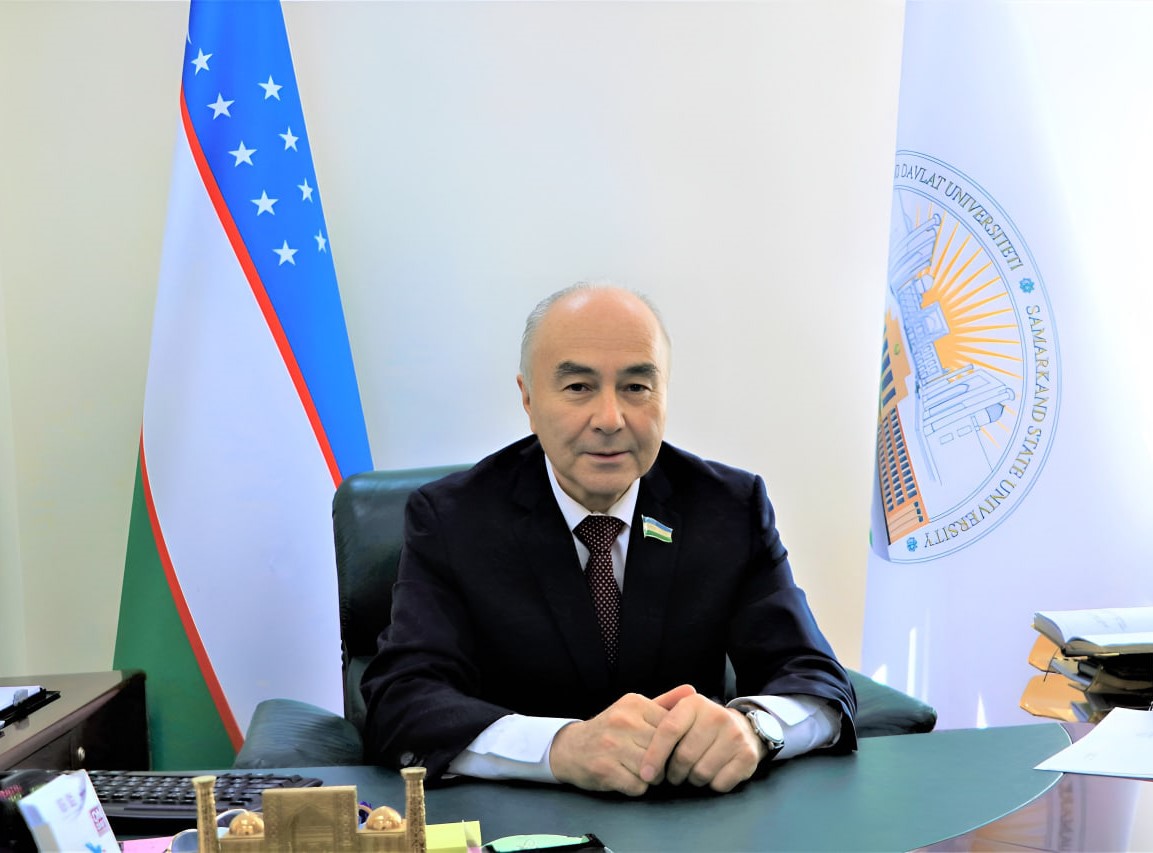Samarkand State University

The Rector of Samarkand State University, Honored Scientist of the Republic of Uzbekistan, Member of the Senate of the Oliy Majlis, Rustam Kholmurodov.
Samarkand State University is not only a famous and ancient higher education institution in Uzbekistan but also in many countries around the world. Although the official founding of SamDU dates back to 1927, its formation and acquisition of higher education status are closely linked to the Mirzo Ulughbek Madrasa. In other words, it has a history of over 600 years.
Great figures from our history, such as Mirzo Ulughbek, Qozizoda Rumi, Ali Qushchi, G'iyosiddin Koshiy, Alisher Navoi, and Abdurahmon Jami, have elevated enlightenment and culture in Samarkand and laid the foundations of world civilization. We take pride in the fact that today’s higher education institutions have been established based on their rich legacy.
Samarkand State University was initially established in 1927 under the name of the Higher Pedagogical Institute. In 1930, it became the Uzbekistan State Pedagogical Academy, and in 1933, it was transformed into Uzbekistan State University. During the years 1941-1944, due to World War II, Uzbekistan State University was included in the structure of the Central Asian University. In 1944, Uzbekistan State University was restored. Since 1960, it has been known as Samarkand State University.
Currently, Samarkand State University has 7 faculties and 4 institutes, with 59 departments offering 72 educational programs. Approximately 17,000 undergraduate students and over 700 graduate students in 50 master's specializations are studying at the university. They are taught by nearly 900 professors and teachers, including 3 academicians, 115 doctors of science, and 440 candidates of science, as well as PhD holders. More than 60 doctoral programs (PhD and DSc) in various specializations are available, with 12 scientific councils conducting defense procedures for these programs.
The university has a library with more than 3 million scientific and educational literature, including nearly 15,000 rare books and Eastern manuscripts.
Additionally, the university operates 1 academic lyceum, 2 schools, 4 museums, 1 orangery, and 2 unique structures.
During the years of independence, 23 students have received state scholarships named after the President of the Republic of Uzbekistan, 125 students have been awarded state scholarships named after notable individuals, and 11 students have been honored with the Zulfiya State Award.
Among the university’s graduates, 13 have become world champions, 80 have become Asian champions, and over 170 have become champions of Uzbekistan. Furthermore, 3 have won Olympic and Paralympic gold medals.
Among the professors and teachers of Samarkand State University, 1 has been awarded the title of Honored Scientist of the Republic of Uzbekistan, 2 have received the "El-yurt Hurmati" order, 4 have been named Honored Youth Mentors of Uzbekistan, 3 have been awarded the "Shuhrat" medal, 3 have received the "Labor Glory" medal, and 2 have been honored with the "Friendship" order.

